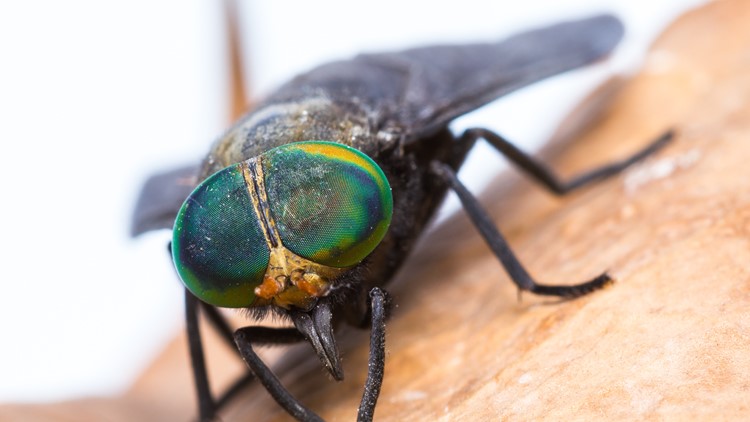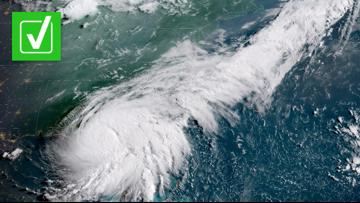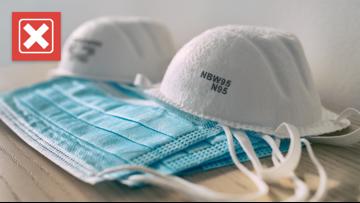Horse flies are bloodsucking pests found throughout the world and in every U.S. state except for Hawaii. They are most commonly found around areas where there are permanently wet or moist lands. They typically bother cattle and horses, but they can also deliver painful bites to humans.
A VERIFY reader who is especially sensitive to their bites asked if there are ways to keep the insects away.
We VERIFIED four tips to prevent horse fly bites.
THE SOURCES
- Louisiana State University Agricultural Center
- Washington State Department of Health
- Terminix, a pest control company
- Jonathan Larson, Ph.D., entomologist at the University of Kentucky
- Floyd Shockley, Ph.D., entomologist at the Smithsonian National Museum of Natural History
1. Avoid outdoor activities when horse flies are most active.
Horse flies are most active from just before sunrise until about three hours after sunrise, according to the Louisiana State University (LSU) Agricultural Center. Their activity peaks again two hours before sunset to just after sunset.
Floyd Shockley, an entomologist at the Smithsonian National Museum of Natural History, suggested taking extra precautions during those times.
“Making sure that you are protected first thing in the morning and right before sunset will help you avoid most of the bites because that’s when the most activity will be,” he said.
Though horse flies hide during the hottest part of the day, that doesn’t necessarily mean you won’t be attacked during that time – but bites are far less likely, Shockley said.
2. Wear light-colored and loose-fitting clothing.
Entomologists agree that wearing the right type of clothing can help prevent horse fly bites.
Horse flies are attracted to dark-colored clothing, just like mosquitoes, according to Shockley.
Jonathan Larson, an entomologist at the University of Kentucky, said this is especially true for the color blue.
“Flies across the board like the color blue,” Larson said. “They go to flowers that are blue and things like that. So it's not surprising that even these bloodsucking flies would enjoy that color.”
That’s why our sources say people should wear lighter-colored clothing, as well as long-sleeved shirts, pants and hats since horse flies typically bite exposed skin.
It’s also possible for horse flies to bite through some types of clothing since they have “sharp, serrated mouthparts that slice the skin,” according to Shockley.
“So if you have really tight-fitting clothing, they can actually cut through the clothing and get to the skin underneath,” he said.
Larson said horse flies may also be able to get their mouthparts through softer fabrics such as cotton.
Both Shockley and Larson recommend wearing loose-fitting clothing if you’re in an area where horse flies are prevalent.
3. Use insect repellents.
Repellents are much less effective in preventing horse fly bites than those from other insects such as mosquitoes, Larson said.
But some repellents, including permethrin, may provide protection. When used as an insect repellent, permethrin is only used on clothing and not skin.
You may be able to find clothing that is infused with the insecticide or a permethrin clothes treatment.
Other insect repellents with ingredients such as DEET, citronella and geraniol can also keep horse flies away, according to the LSU Agricultural Center.
4. Get rid of standing water, trash and certain types of vegetation.
Terminix, a pest control company, recommends eliminating any standing water since horse flies prefer to lay their eggs in moist environments. Marshes and swamps are particularly susceptible to horse fly infestations, the company says.
Shockley also pointed to “wet, boggy” habitats as areas where horse flies are likely to congregate.
The Washington DOH also says you can prevent bites by cleaning up piles of trash, as well as decaying hay, straw and other vegetation that attract flies.













